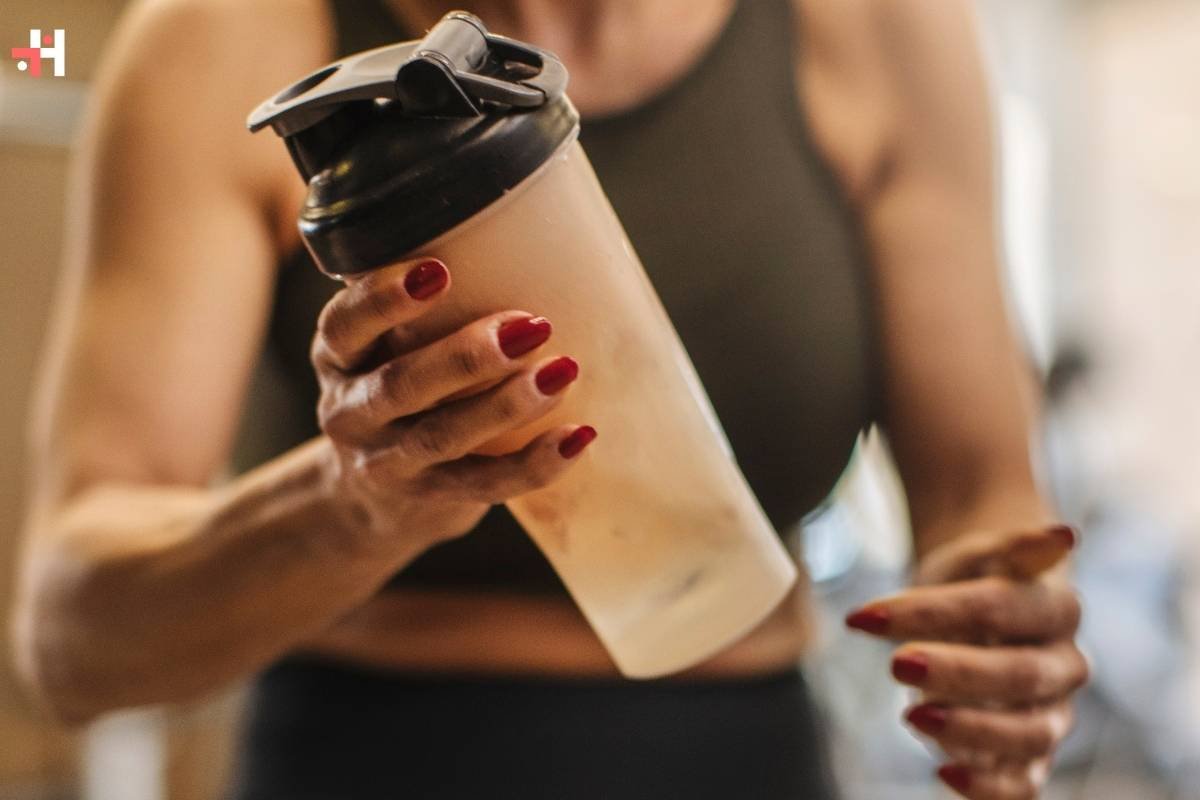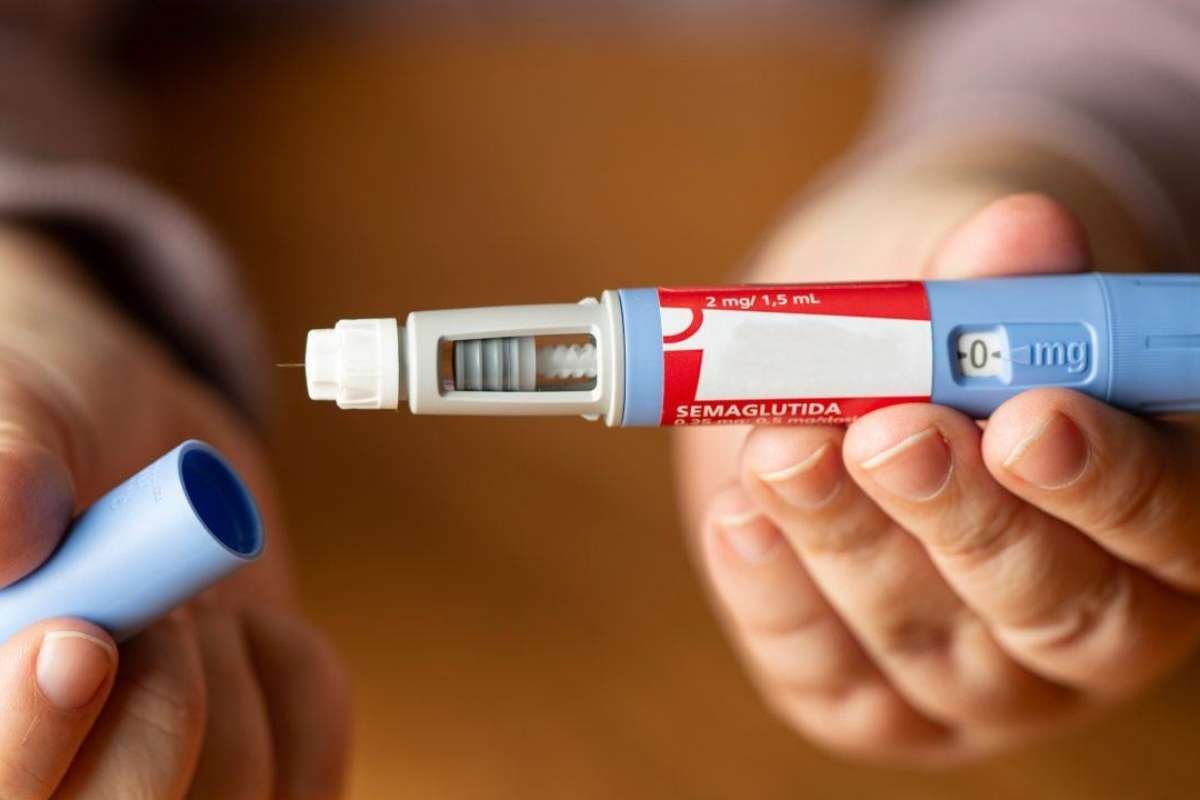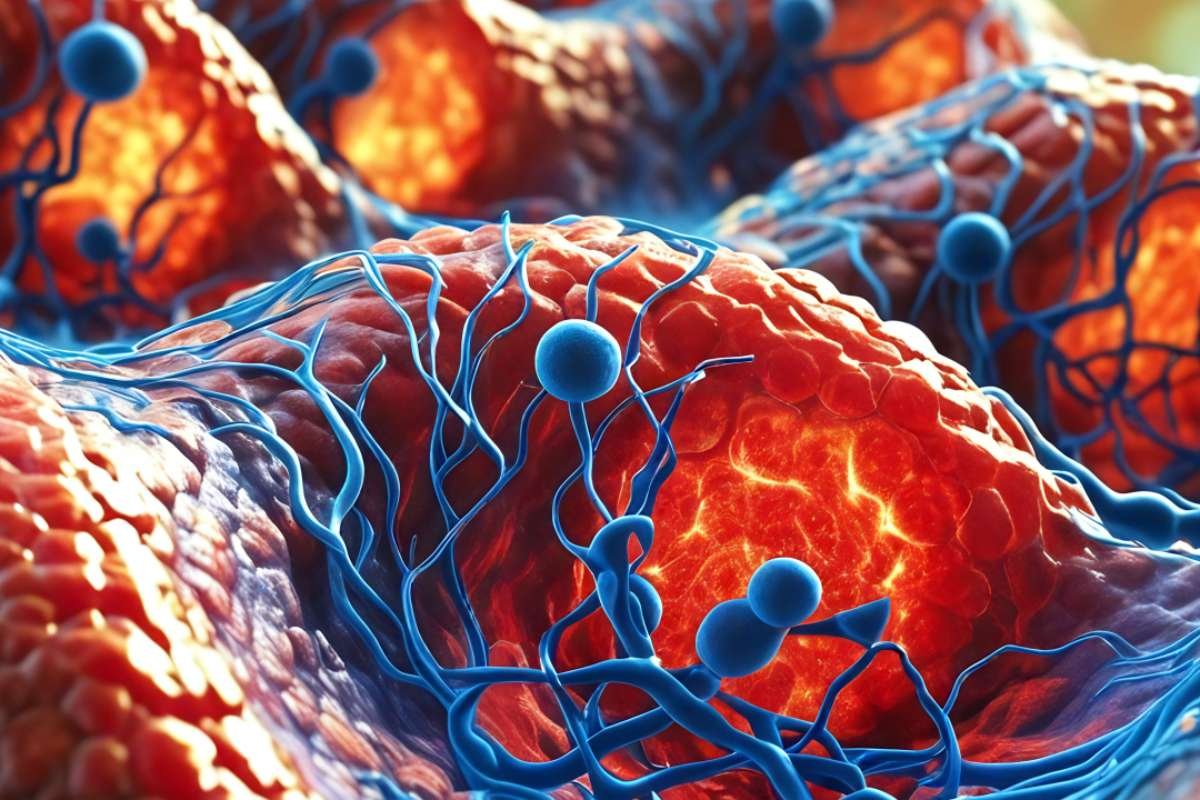When you work out hard, the glycogen level in your body “starves muscles” down. Its deficiency causes major body problems like Hypoglycemia (low blood sugar), liver damage, and muscle weakness. Low glycogen levels indirectly mean your muscle cells cannot rapidly produce ATP (Adenosine triphosphate, energy derived by breaking the phosphate bond of ATP as per the need) to maintain exercise intensity.
There are lots of sports drinks that promise effective results. However, they don’t stop breaking down any more muscles, switch your body into repair, and take your body to rebuild and recovery mode. If you’re a fitness freak, you must be facing these challenges daily. Have you ever thought of its best solution?
Dextrose Shake is there for you! Taking dextrose immediately after your workout can help maximize your gains and drive nutrient uptake.
A lot of questions might be coming to your mind, like what is Dextrose Shake? How does it help drive nutrient uptake in cells? How much dextrose a person should consume? What are its causes? Its precautions and many more.
Stay tuned! We will answer each of them.
What is Dextrose?
Dextrose is a simple sugar made from corn or wheat that’s chemically identical to glucose or blood sugar. It’s often used as a sweetener in baking products and is found in processed food and corn syrup.
How Is Dextrose Shake Used in Medication?

- Dextrose is used in medication as well. It is dissolved in solutions and is given intravenously (into or within a vein). It is also combined with other drugs or used to increase glucose in a patient’s blood. Glucose is found in foods rich in carbohydrates like bread, cereal, potatoes, fruit, pasta, and rice. All the cells and organs in your body need glucose to function properly.
- Dextrose is also used to provide carbohydrate calories to a person who cannot eat because of illness, trauma, or other medical conditions. It is given to people who consume too much alcohol.
- Dextrose can also be used to treat hyperkalemia (high levels of potassium in the blood).
- Dextrose shakes are used in patients with problems like Hypoglycemia (low blood sugar), liver damage, and muscle weakness. This shake maintains glycogen levels in patients.
How Much Amount of Dextrose Should a Normal Human Take?

There are 3 forms of Dextrose available in the medical shops: tablets, liquid, and gel.
Dextrose tablets are used in patients with low blood sugars: adults – 15 grams (1 tube) as needed. If there is no response within 15 minutes, take another dose. If there is no response within 30 minutes, call a doctor.
20 to 100 ml of dextrose liquid can be used in a day and can be repeated if required. It is not recommended for people with low potassium levels in the blood or someone who has high sugar levels.
To use the Dextrose gel:
Twist the tip-off, squeeze the entire contents of the tube into the mouth and swallow. In case the tube is punctured or opened – do not use it.
What Precautions Should One Take Before Using Dextrose?
- If you have diabetes (high or low blood sugar problem).
- If you have hyperglycemia or high blood sugar.
- If you have hypokalemia or low potassium levels in the blood.
- If you have peripheral edema, or swelling in the arms, feet, or legs If you have an allergy to corn.
- If you have pulmonary edema, when fluids build up in the lungs.
- Your doctor must check you or your child closely to make sure that the medicine is working properly or not. Blood checks may be needed for unwanted effects.
- Make sure that a trained health professional will give you this medicine in a hospital or clinic setting.
- Dextrose should not be used at or around the time of eating food.
- Avoid using dextrose with alcohol or tobacco.
Dextrose Shake in Body Building
Dextrose is naturally calorie-dense and easy for the body to break down for energy. Bodybuilders may take them as dietary supplements to increase weight and muscle mass.
After a workout, a dextrose shake is a quick way to provide your muscles with recovery carbs and facilitate the absorption of protein. It’s important to note that dextrose lacks other essential nutrients like protein and fat.
Consuming a dextrose shake immediately after exercise helps replenish glycogen levels and promotes muscle recovery by delivering a quick dose of carbohydrates to muscles.
Therefore, we can say a dextrose shake is a convenient and effective way for bodybuilders to optimize their performances and maximize their gains.
What Are the Side Effects of Dextrose Shake?

Side effects of the dextrose shake include:
- Dry skin
- Dehydration
- Nausea
- Stomach upset
- Unexplained fatigue
- Vomiting
- Confusion
- Increasing thirst
- Shortness of breath
- Fruity odor on the breath
Some Frequently Asked Questions (FAQs) About Dextrose
How is dextrose different from regular sugar?
Dextrose is a type of sugar that comes from corn. It’s a simple carbohydrate our body uses for quick energy. Regular table sugar on the other hand is made up of both glucose and fructose.
How is dextrose used in cooking?
Dextrose can be used as a sweetener in baking and cooking. It is often used in recipes for candies, desserts, and sweet sauces to add a sweetness that gives desirable textures.
Is dextrose the same as glucose?
Yes, dextrose is another name for glucose. They are essentially the same thing just with different names.
Can someone find dextrose in everyday foods?
Dextrose is commonly found in many processed foods and beverages, including candies, baked goods, energy drinks, and energy bars.
Can someone use dextrose if they have diabetes?
They need to talk doctor or registered dietitian to determine how much dextrose is safe for them. If reports say yes, they can use it.They need to talk doctor or registered dietitian to determine how much dextrose is safe for them. If reports say yes, they can use it.
Conclusion:
This shake is a perfect companion for anyone looking for power through their day with ease. Whether you’re an athlete or a fitness freak striving for peak performance or staying energized throughout the day, the dextrose shake is there for you.
We hope this blog delivered enough information about Dextrose shake, from its meaning and side effects to its usage, precautions, and some FAQs.










